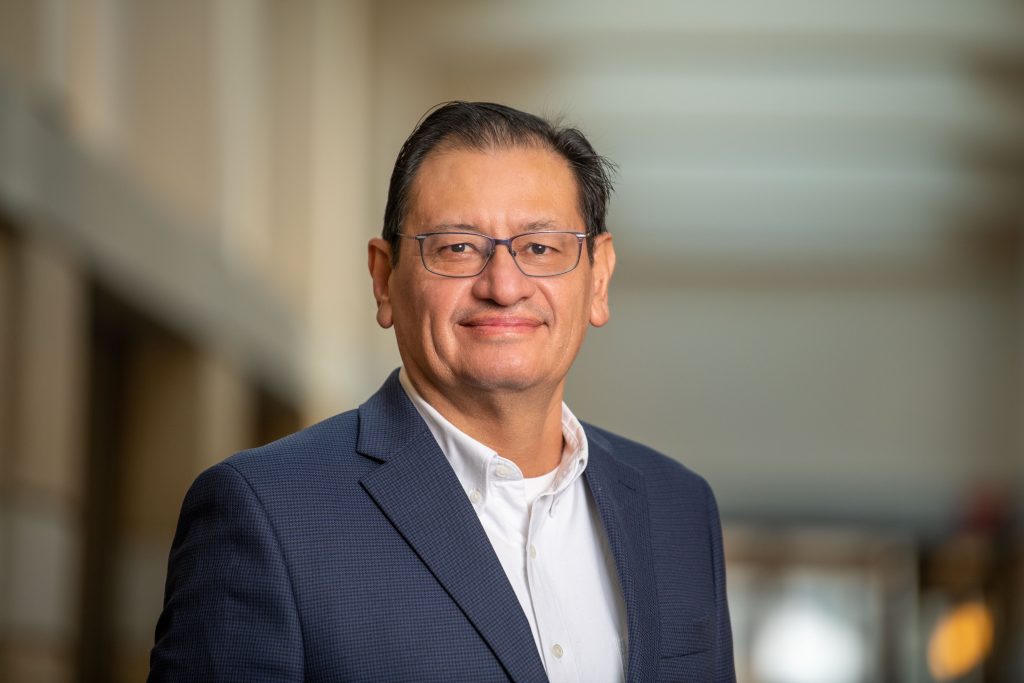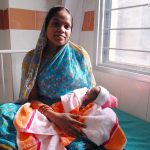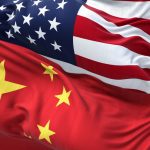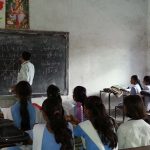In this conversation, Andrés Mejía Acosta, Kuster Family Associate Dean for Policy and Practice at the Keough School, outlines the school’s growing policy impact strategy.
He explains how the strategy is translating the school’s high-impact research into policy-relevant messages, how it is strengthening partnerships beyond Notre Dame to advance human dignity and well-being, and how it is expanding experiential learning opportunities for undergraduate and graduate students.
Q: The Keough School is increasingly focused on making a global policy impact. How do we approach that?
A: The critical question is, how do we craft a unique space in a competitive field where there are highly specialized elite universities already producing policy impact?
In order to have an effective presence, we need to play to our strengths, as a Catholic research university that has a global reach. First, we have a prolific research faculty working across four strategic areas: sustainability and environmental justice; poverty, inequality and marginalization; democracy, governance, institutions and rights; and peace and conflict. Migration is a fifth cross-cutting theme that directly intersects with the others.
Second, our work reflects the values and goals of our Catholic mission of promoting integral human development. This normative approach to preserve human dignity, particularly of the most vulnerable, gives us a unique policy perspective in a world where debates are increasingly divided by political polarization and fundamentalism.
Third, Notre Dame is privileged to have a genuinely global presence, through its alumni network and the support of the University’s Global Gateways. The Keough School has a tremendous opportunity to be a focal point for enhancing the University’s global outreach, by working with development partners and agencies across the world, specially working with Global South countries that are most exposed to conflict, environmental degradation, authoritarian trends and increasing poverty.
We can move the needle on policy debates to ensure our research and teaching reaches policymakers, partners and vulnerable communities.
Finally, our policy impact strategy is in a fortunate position where Notre Dame’s strategic framework is directly aligned with the strategic priorities for the Keough School. Our main themes and areas of expertise directly reflect the University’s effort to roll out multi-year and interdisciplinary initiatives to fight poverty, preserve democracy, prevent environmental degradation and advance an ethical approach to addressing development challenges.
In short, we have favorable conditions to move the needle on policy debates, to ensure our research knowledge and teaching experience reaches policymakers, partners and vulnerable communities.
Our next challenge is, how do we bring our research and expertise where it’s most needed?
Q: How is our school making an impact by matching our research with the people who can apply it to make a difference?
A: Last year, we launched our Evidence to Action policy seminar series in Washington, D.C. This is a concerted effort of our global policy impact strategy to showcase, every month, some of the rich and interdisciplinary research done by Keough School faculty, with the policy expertise of key policymakers and stakeholders at government and nongovernmental organizations. Our Keough School Washington Office serves as a strategic resource to enable these research-to-policy dialogues. In recent months we have hosted policy conversations on migration, food and nutrition, climate change, peace accords monitoring and the Middle East crisis.
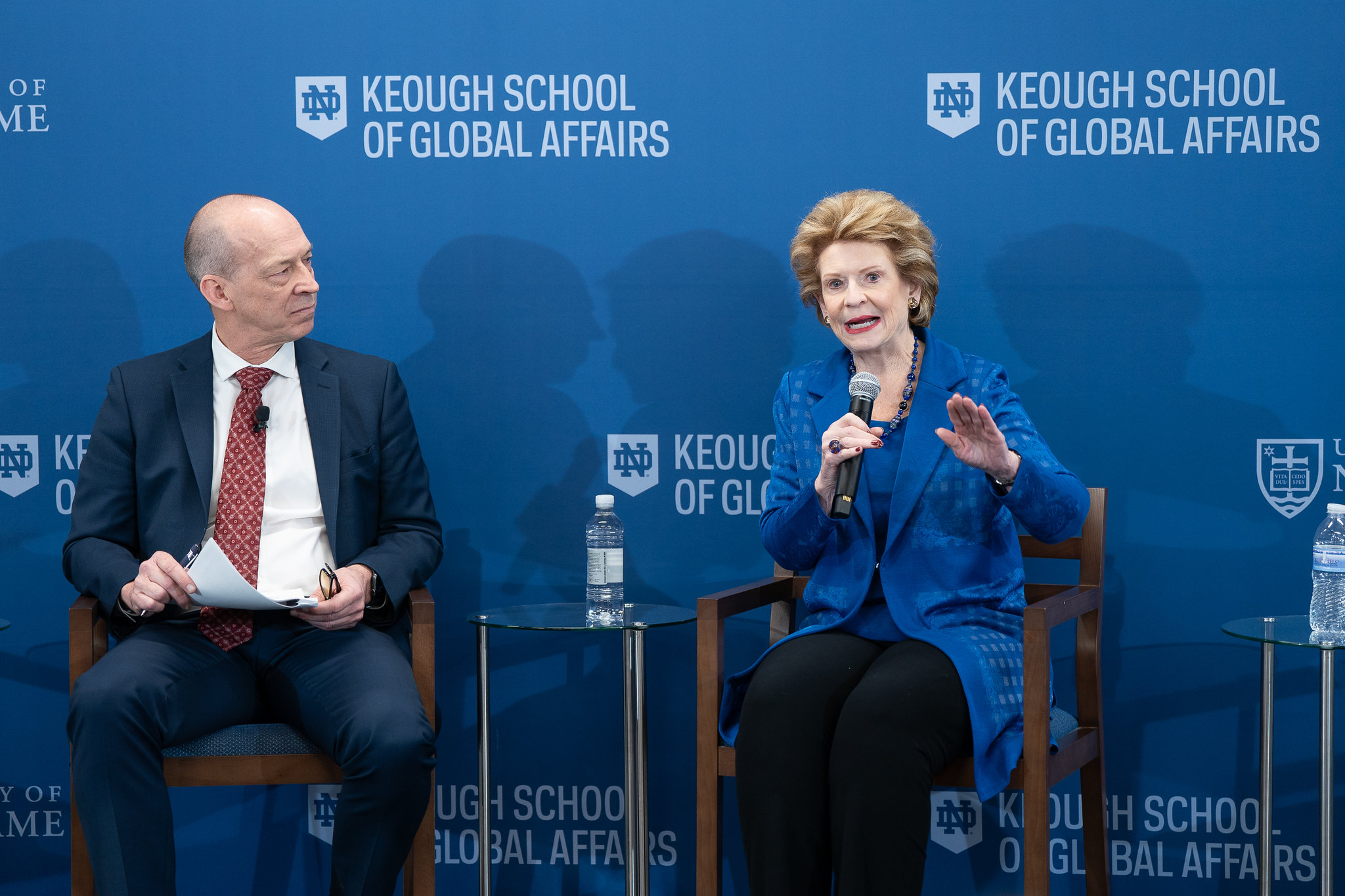
Translating research into policy requires a double effort on our part. First is to identify the relevant research that has direct policy implications. In order to do this, we have incorporated in our team a policy impact specialist whose work is to survey, read and identify key research messages that can be translated and shared with wider audiences.
The second element is to identify who our key audiences are. Who do we speak to and who needs to hear from us? And that is also an ongoing effort with our communications team and our policy impact specialists and our partnership colleagues. We work together to identify where we have natural connections, where we can be more present, and to identify where our work has been impactful in the past. Our goal is to systematically match our prolific and specialized research with the demand for practical knowledge across policymakers and practitioners.
Q: Talk about our partnerships and the important role they play in our policy impact.
A: Once we identify our key audiences, we want to be more intentional about sharing knowledge with critical audiences in a strategic manner. The logic is to go beyond organizing events to cultivate and develop a reliable network of excellent partners who are actively engaged in policymaking and want to hear what we have to say on pressing development issues.
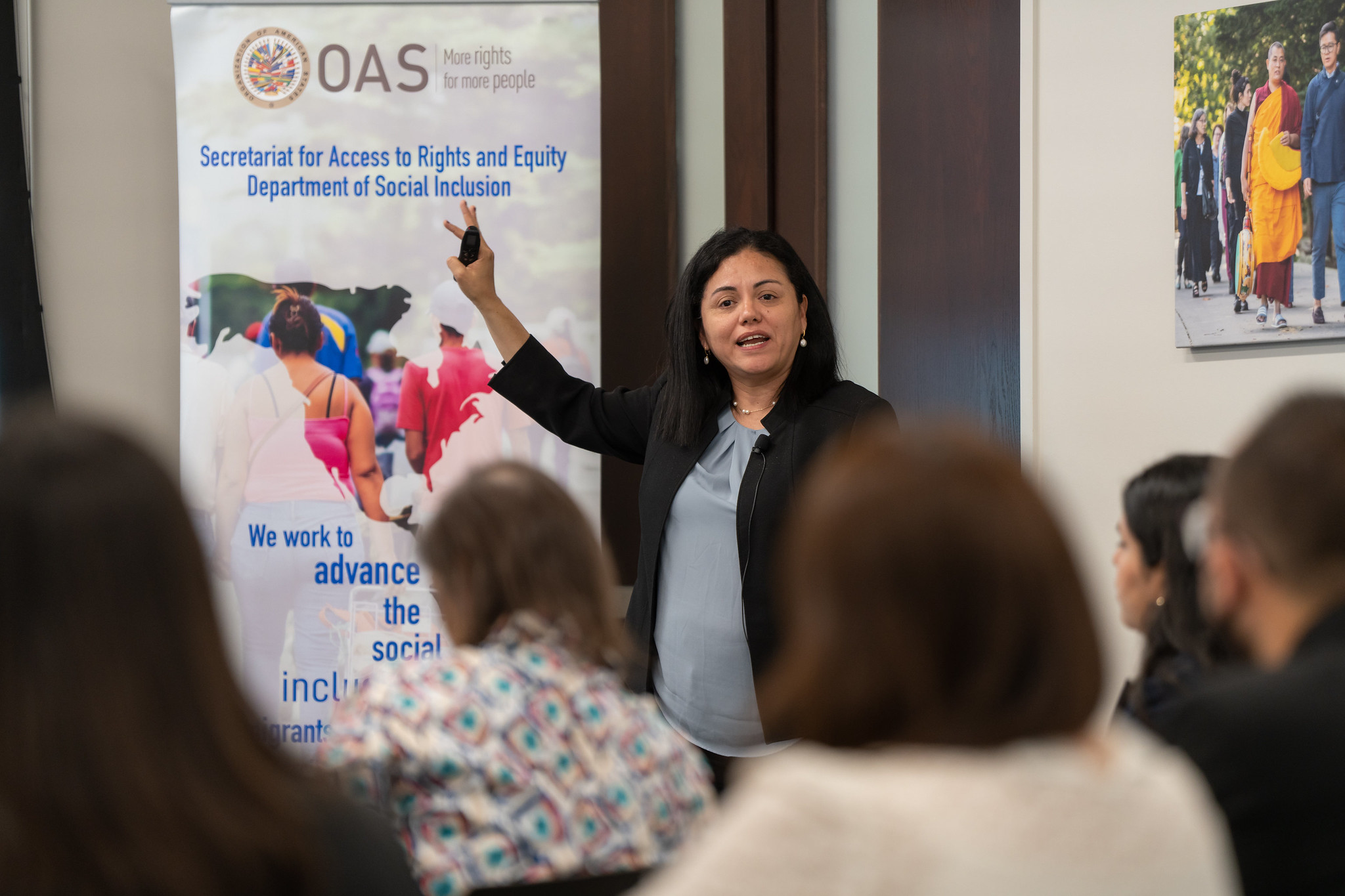
We have several examples of how we have strengthened existing partnerships to maximize our policy outreach. We have contributed, for example, to advancing awareness around human rights and immigration policies, working jointly with the Organization of American States. We have discussed lessons for addressing global nutrition challenges by co-hosting an Evidence to Action seminar with the International Food Policy Research Institute. We have facilitated policy conversations around the ongoing Middle East crisis, connecting our faculty experts with key actors and decision-makers in Washington, D.C.
More recently, we have announced a new partnership with the U.S. Department of State’s Bureau of Conflict and Stabilization Operations. The Keough School is now part of the Academic Centers of Conflict Anticipation and Prevention network, which will give our students access to non-classified data to analyze and inform conflict prevention policy.
In January, the Keough School hosted a research-to-policy workshop exploring the intersection of these themes at the University of Notre Dame’s London Global Gateway, which is part of Notre Dame International. We convened faculty and experts from the London School of Economics, King’s College London, University College London, Oxford and Cambridge as well as The World Bank and the United Nations Development Program to discuss policy-relevant research. This is a good example of how the Keough School can advance much-needed policy conversations in a global hub like London.
We forge strong strategic partnerships by building on the longstanding reputation of our school’s excellent institutes.
We are able to forge these partnerships because we build on the longstanding reputation of our school’s excellent institutes. The Kroc Institute for International Peace Studies is known worldwide for its work analyzing systems and structures of violence and peace for several decades. The Kellogg Institute for International Studies has a global reputation for doing high-quality research around democracy, democratization and human development for more than four decades. Finally, the Pulte Institute for Global Development, has been an important reference point for conducting excellent research and policy-relevant work around poverty, inequality and environmental justice.
Taken together, these examples illustrate how we can mobilize our strengths to advance meaningful and sustained policy impact over time.
Q: You mentioned there are multiple pathways to policy impact. What role do our students play in this?
A: Our students, both undergraduates and graduate, play a critical role to impact policy through their experiential learning. Our students are fantastic policy ambassadors because they carry the knowledge, values and mission of Notre Dame.
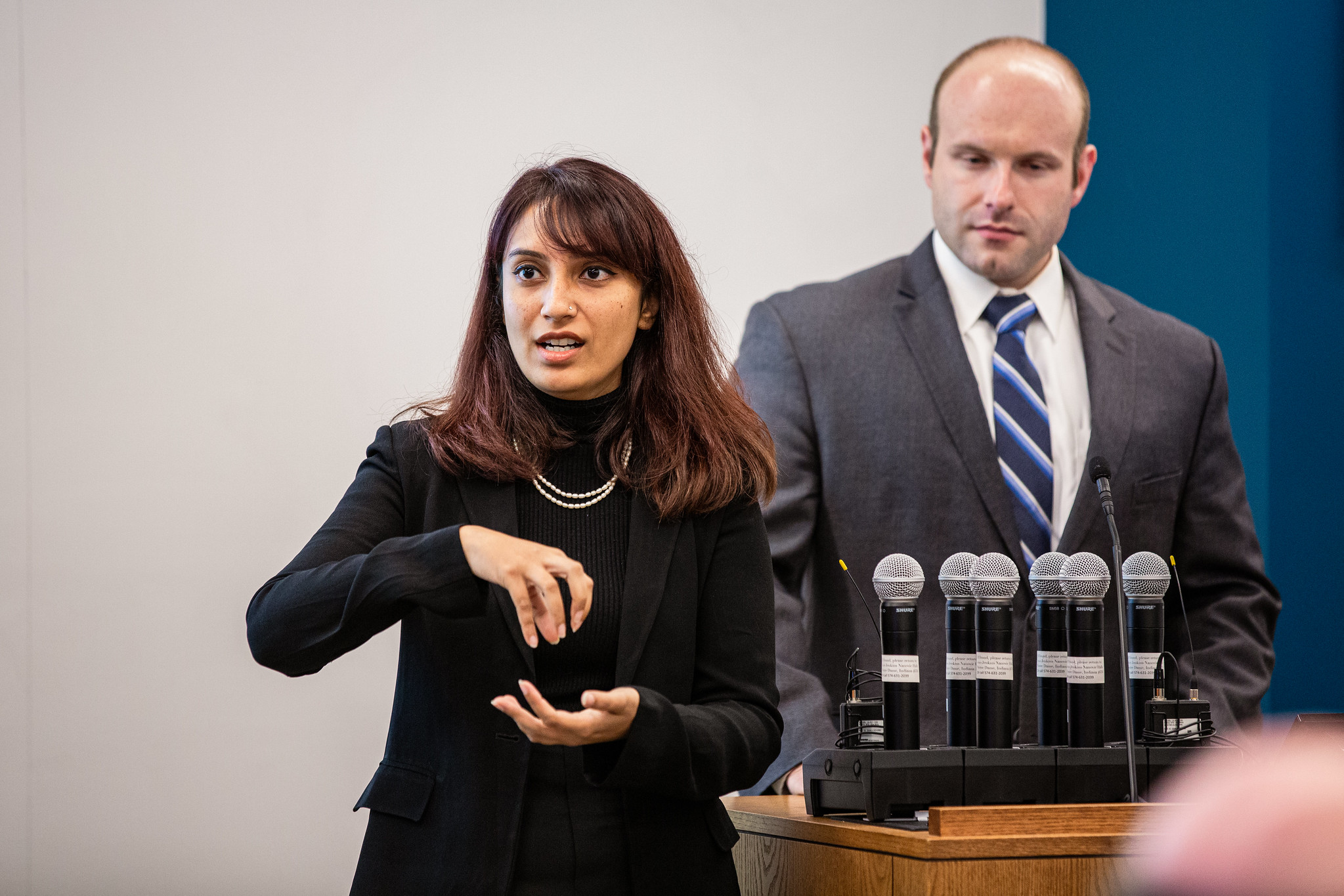
In collaboration with other units and institutes, we are thinking of constructive ways to expose our students to how policy decisions are made, and how they can bring their own knowledge, background and expertise into areas of practical application. Fortunately, we have excellent cohorts of domestic and international students who believe in being agents of change. We also have generous mentoring, teaching and networking resources to facilitate their engagement.
Moving forward, the key words for effective experiential learning are patience and continued engagement. For our engagements to be effective, they need to be well planned, predictable and repeatable so we can build on success. We are continually collaborating with teaching and research colleagues to organize avenues for students to expand and explore their experiential learning. This will not be done overnight, but we’re working hard so that we have clearly defined pathways that will empower our students to make the most out of their policy exposure. Ultimately, Notre Dame and the Keough School are preparing them for impactful careers serving a world in need.
